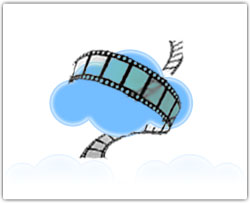The Legal Impact of Cloud in Entertainment
 When you download a piece of music from the cloud, who owns it and who is due the payment for the copyright of that material? With the introduction of the cloud into the complex world of copyright issues for music, the creation of various ways to develop electronic content and deliver it has once again begun to muddy the waters.
When you download a piece of music from the cloud, who owns it and who is due the payment for the copyright of that material? With the introduction of the cloud into the complex world of copyright issues for music, the creation of various ways to develop electronic content and deliver it has once again begun to muddy the waters.
There has been tremendous growth in the business of cloud-based distribution systems to the point that the industry has begun to rely upon them for a larger share of their business models. This unexpected turn has led to some unusual and, what was bound to be unclear, copyright issues. The end result has been a twofold need for balance. The first is for copyright holders who need and have a right to create and control ownership and distribution of their work. The second is the desire of the general public who consumes and, in fact, creates the demand for that work to use it and access it through service providers of the various platforms available. All of this needs to be able to continue to grow without consumers infringing on the copyright ownership of the artists and companies who own these copyrights or companies denying consumers access to content they desire.
Cloud Enables Anytime, Anywhere Access to Media
At the center of this controversy is the ability of virtual servers in the cloud to deliver content anytime, anywhere to an ever-growing audience. It is this unprecedented growth and the proliferation of devices that can access virtual servers and the content they deliver that has turned content on the go into such a huge commodity. Everyone wants in on the deal, and that content access model creates issues through the act of copyrights being “transferred, transmitted and distributed” according to Barry Slotnick, Chair of the Intellectual Property and Entertainment Litigation Practice Group at Loeb & Loeb, New York.
“We are in a perilous time for copyright owners,” comments Slotnick. “The decisions are not looking good for owners, to say the least.” He points to Napster and admits that the new world of cloud hosting service providers and cloud servers “are legitimate businesses arguably willing to comply with the law.” And in fact the majority of cloud servers are more than willing to ensure they do not run up against the Digital Millennium Copyright Act (DMCA) in their efforts to deliver the benefits of the cloud to an every growing and hungry consumer.
For many involved in the legal aspects, the key feature is the intended audience. The question soon revolves around two ways of looking at a cloud-based service provider’s role. Are they simply a passive neutral conduit of content or do you consider them to be basically an electronic locker holding that content and then distributing it?
Can you characterize the cloud server deliver system as nothing more than another version of the thumb drive, simply a more efficient model of that concept? At what point do we need to balance the ability of technology to deliver in amazing new ways against the need to compensate the creators of the content who hold the copyright?
Legislation has been used in the past to regulate this balance of need versus ownership, and the DMCA was supposed to address that for the new delivery of content. But already the changes in technology have begun to make those laws outdated. “The law will always be behind the technology,” commented Slotnick. He pointed out that the DMCA “was useful about a year into the millennium.”
Video Recording Technology Boosted Sales for Copyright Holders
Other changes in technology have run into this problem before, and have found some unexpected results of the rapid changes from new technological delivery systems. The videocassette recorder (VCR) is a good example of this. When the VCR was first established, there were fears that the devices would cut into sales of entertainment. Instead it opened up totally new markets for delivery of entertainment. As opposed to cutting entertainment copyright holders out of old business, suddenly the market for redistribution of material previously available for free on your television could be purchased or rented for multiple viewing at home on your VCR player. This created a whole new revenue stream for many.
The channel for distribution has now changed to cloud servers that make this same material available across a multitude of devices. The same need to compensate copyright holders for that material will need to be satisfied, and those who look to enter into this brave new world will need to be aware of this.
Be Part of Our Cloud Conversation
Our articles are written to provide you with tools and information to meet your IT and cloud solution needs. Join us on Facebook and Twitter.


